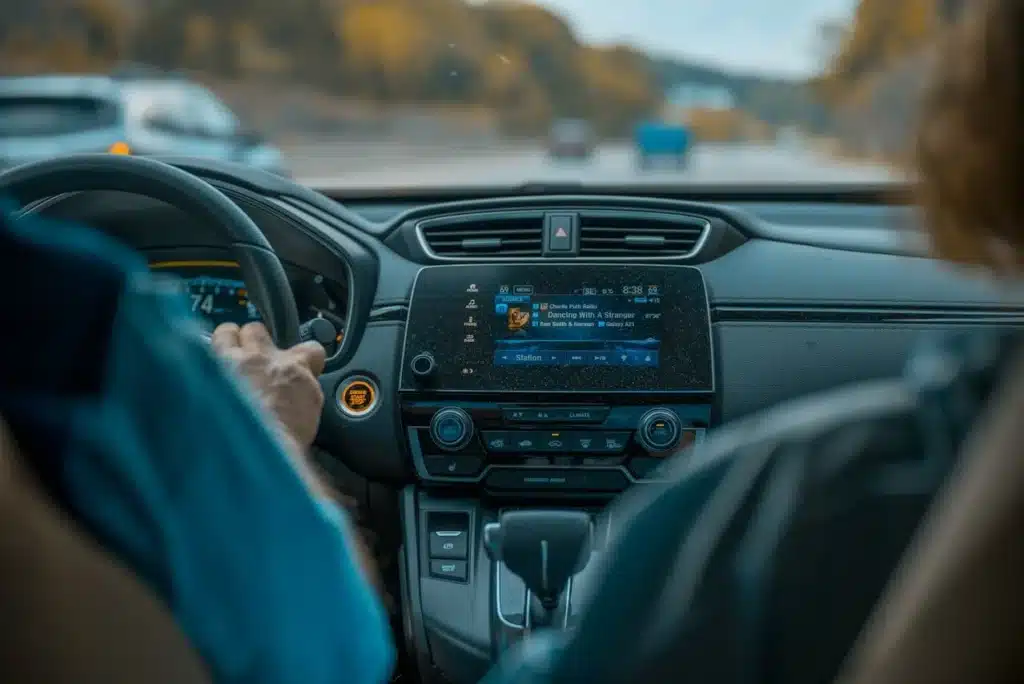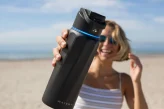Driving is an experience for most of us. We love our car like it’s our family member, right? We take care of it, wash it, and do a whole lot because it’s not just about getting from A to B. It’s an experience. And part of that experience is music. In fact, there’s even a whole popular show built around it. Remember the Carpool Karaoke. But nothing kills that vibe faster than a bad stereo in your car. So, on that note, here’s the Car Stereo Buying Guide for a better driving experience.

Portable Wireless Carplay Car Stereo, 7″ Touchscreen with Apple CarPlay & Android Auto
$49.00
on Amazon

Pioneer DMH-W2770NEX 6.8″ Touchscreen, Double Din – Apple CarPlay & Android Auto
$427.83
on Amazon
Pioneer MVH-S230BT 1-Din Digital Media Receiver
$93.75
on Amazon
Portable Wireless Carplay Car Stereo, 7″ Touchscreen with Apple CarPlay & Android Auto
$49.00
on Amazon
CAMECHO 7″ Double Din Car Stereo Audio Bluetooth
$32.43
on Amazon
JVC KW-R950BTS Bluetooth Car Stereo – Double DIN – 13-Band EQ
$169.00
on Amazon
Pioneer DMH-W2770NEX 6.8″ Touchscreen, Double Din – Apple CarPlay & Android Auto
$427.83
on Amazon
Car Stereo Buying Guide
We have gone through the whole process, and let me tell you. It can become overwhelming at some point. So, we break it down into 5 simple steps for you.
Step 1: Make Sure It Fits Your Vehicle
Not every aftermarket head unit will slide into your dash like it belongs there. Car stereos come in different sizes, most commonly single-DIN (about 2 inches tall) and double-DIN (about 4 inches). You can fit a single-DIN into a double-DIN space with an adapter kit, but you can’t force the opposite.
Also check the depth, newer cars often have shallower dash cavities since they skip CD drives, so a deep stereo may stick out awkwardly. And if your vehicle has factory features like an external amp, steering wheel controls, or built-in navigation, make sure the new unit can integrate with them.
Step 2: Set Your Budget Early
The best car stereo for you isn’t always the most expensive. Prices range from around $50 for a basic unit to over $400 for a fully-loaded in-dash receiver, and OEM replacements can cost even more.
Beyond the stereo itself, factor in costs for a wiring harness, dash kit, or even upgraded speakers, amps, and subs. A full car audio system upgrade can easily go from $100 to $1,000+, so decide how far you want to go and stick to it.
Step 3: Prioritize Sound Quality
If you want the best car stereo for your ride, don’t just chase flashy features; start with sound quality. Your head unit (also called an aftermarket head unit or in-dash receiver) is the brain of your car audio system. It processes the signal before it reaches your speakers and amplifiers, so a weak stereo means weak sound no matter how good your speakers are.
Look for models with:
- High RMS power output for cleaner sound at higher volumes
- Advanced equalizer controls to fine-tune bass, mids, and treble
- High-voltage preamp outputs if you plan to run external amplifiers
- Low signal-to-noise ratio (SNR) for minimal background hiss
If you’re pairing it with upgraded speakers, subs, or amps, choose a stereo that supports it. Think of it like building a home theater, the TV is important, but without a solid receiver, the whole setup underperforms.
Step 4: Decide on the Features You Need
Here’s where you tailor your car audio system to your lifestyle. The best car stereo for someone who streams podcasts on short commutes isn’t the same as for someone who takes long road trips with a curated playlist.
Key features to consider:
- Bluetooth connectivity for wireless streaming and hands-free calls
- Apple CarPlay / Android Auto for full phone integration, navigation, and voice commands
- High-res touchscreen displays for easier control and better visibility
- USB ports with fast charging so your phone battery doesn’t drain mid-trip
- Multiple device pairing if you share the car with others
- Built-in HD Radio or SiriusXM for more stations and better audio quality
- Support for high-res audio formats like FLAC for lossless music playback
- Customizable display colors and themes to match your dashboard aesthetics
Also think about future-proofing. Technology moves fast, so a head unit with firmware updates and expandable features will stay relevant longer.
Step 5: Installation and Compatibility Extras
Even the best car stereo won’t perform if it’s installed poorly. If you’re going DIY, make sure you have a direct-fit wiring harness, the right dash kit, and the tools to avoid damaging panels or wiring. Some cars will need additional adapters to keep factory steering wheel controls, backup cameras, or warning chimes functional.
If that sounds like too much, professional installation is worth the cost. You’ll get clean wiring, correct integration, and a setup that works flawlessly from day one.
Bottom line
The right head unit transforms your driving experience, turning every trip into something you look forward to. Whether you’re chasing crystal-clear sound, modern smartphone integration, or just a simple upgrade from a busted factory radio, picking the right stereo is about knowing your car, your budget, and your needs. Hope this Car Stereo Buying Guide helped. Get those three locked in, and the rest falls into place.










